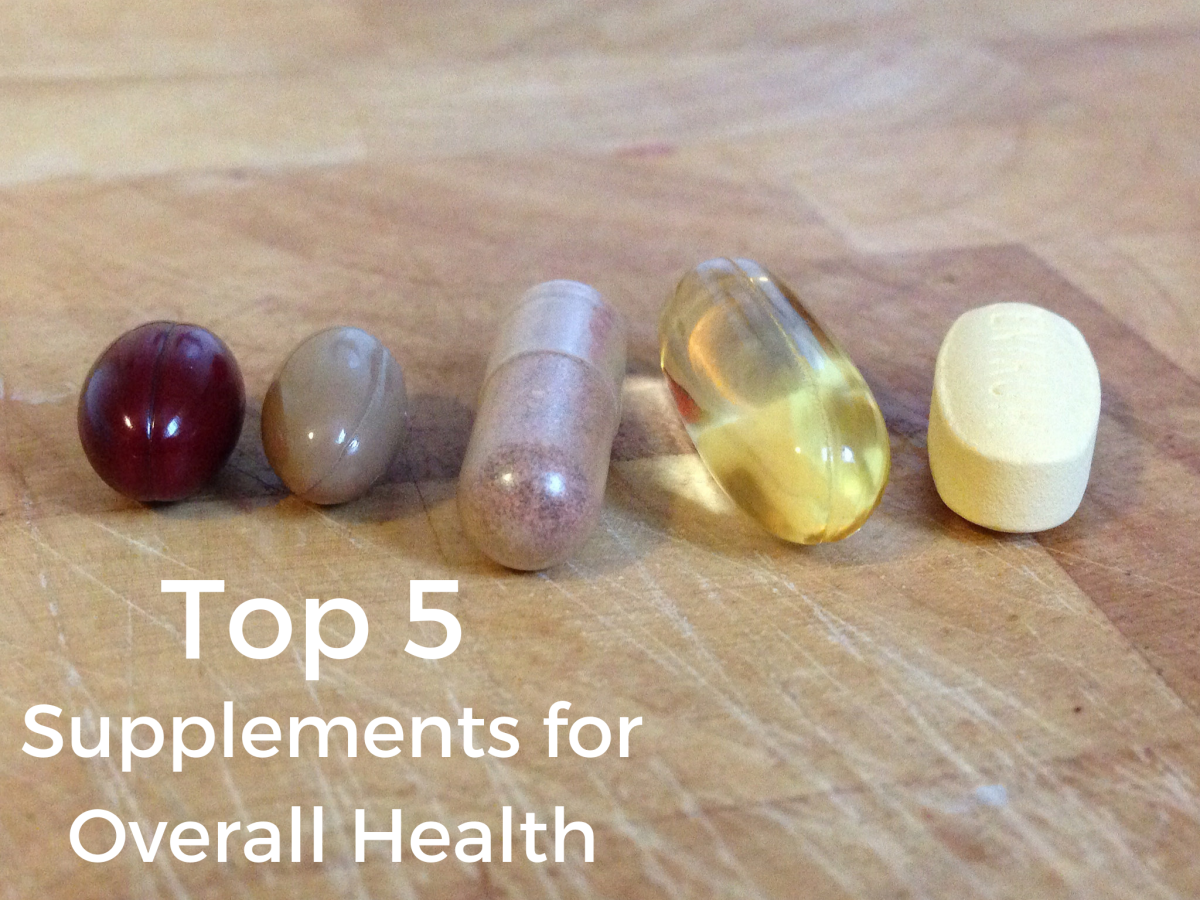Should We Be Taking Calcium Supplement?
It is obvious that it is best to get calcium from foods. However, should we be taking calcium supplements in addition?
Based on the number of calcium supplements in the store shelves, it looks like many of us are taking calcium supplements. But should we? And are we taking the right kind?
The answer to that question will depend on the individual and situation. For some people, the answer is yes. And for others, it is no.
Let me preface this by saying that this is not medical advice and I am not a medical professional. This is just opinion at the time of this writing based on reading in books and on the internet.
It is true that our body require calcium and calcium is an essential mineral. In fact, it is the most abundant mineral in the body with about 99% of our calcium is stored in our bones and teeth. The other 1% is in use for muscle and nerve functions and hormonal secretion.
Calcium is not the only thing needed for bone health
If you ask people why they take calcium supplement, they are likely to answer that it is to prevent osteoporosis and to maintain bone health. While it is true that calcium plays a role in these, it is not the only thing. You also need vitamin D3 and magnesium for bone health. Resistance training and exercise is also very important.
Your body require vitamin D in order to absorb calcium. Your bone is not just storage for calcium, the bones acts as a storage vessel for another critical mineral called magnesium.
Paul Jaminet says that ...
"If you’re worried about bone health, supplement with vitamins D, K2, and magnesium citrate – not calcium."
In fact, Dr. Kim Millman said the most important supplement for bone health is vitamin K -- just listen to Underground Wellness podcast The Truth about Bone Disease and Osteo Drugs
The Calcium Paradox
There is a bit of a problem with calcium. Listen to what was written in the book Vitamin K2 and the Calcium Paradox. It says ...
"The outcome was clear: the increased risk of death from heart disease associated with calcium supplements outweighed any benefit to bone health."
This was in reference to a scientific paper in the British Medical Journal on April 2011 titled Calcium supplements with or without vitamin D and risk of cardiovascular events which resulted in the conclusion ...
"Calcium supplements with or without vitamin D modestly increase the risk of cardiovascular events, especially myocardial infarction"
The problem with calcium, be it from food or from supplement, the calcium was being deposited in the soft tissues of the arteries rather than in the bones as we would like them to. This is the "Calcium Paradox" that the book is talking about: excessive calcium in the arteries while at the same time calcium deficiency in the skeleton.
The Need for Vitamin K2
The paradox is resolved by the addition of vitamin K2. It is vitamin K2 that plays a key role in directing the calcium to be deposited in the bones rather than in the soft tissues. Unfortunately, K2 is quite lacking in our modern foods. It is most abundantly found in animal products (meats, eggs, and butter) of animals that have been grass-fed or pasture raised.
Conventionally raised animals are not good enough. These animals can only convert K1 to K2 if they ate the K1 that are in chloroplast the grass. We humans are not able to convert K1 to K2 well.
Below video is an interview by Dr. Mercola of Dr. Kate Rheaume-Bleue, who wrote Vitamin K2 and the Calcium Paradox.
Calcium and Kidney Stones
Calcium supplements also have other problems. Calcium supplements is associated with increased risk of calcium-oxalate kidney stones; while calcium from foods decrease the risk calcium-oxalate stones. Another paradox, it seems. But the reason is that the calcium from food binds to the oxalates in those same food and prevents the calcium-oxalate combination from getting pass the intestinal barrier.
The article Taking Calcium Supplements? Want to avoid kidney Stones? writes ...
"The study's investigators conclude that a high intake of dietary calcium reduces the risk of kidney stones but supplemental calcium increases the risk."
Chris Kresser wrote article Calcium Supplements: Why You Should Think Twice where he cites studies indicating health risk associated with excessive calcium. When taking supplements it is difficult to know if we are getting excessive calcium or not. Even when we are taking the dosage on the bottle, depending on our particular body chemistry and activity we may or may not be getting too much.
When we are getting calcium from whole foods, we are less likely to over-dose on them. At least we are not getting a burst of calcium into our bloodstream all at once. With a large bolus of calcium coming in, it may be too much for our body to absorb and process which leads to some of the risks of excessive calcium including kidney stones and calcification of arteries.
He writes ...
"Beyond being ineffective for bone health, calcium supplements are associated with some pretty serious health risks. Studies on the relationship between calcium and cardiovascular disease (CVD) suggest that dietary intake of calcium protects against heart disease, but supplemental calcium may increase the risk."
Dr. Axe also see some concerns with calcium supplements. He writes in his blog article...
"not only do calcium supplements do very little to protect bones, these supplements are now being shown to actually increase the risk for heart attacks....The way the body absorbs calcium from a supplement versus how it absorbs calcium from real foods is different"
Healthy Men Do Not need calcium supplements
A New York Times article writes ...
"In general, data do not support the use of calcium supplements in most situations. Calcium citrate is considered the best formulation, if supplements are needed."
Many others say that men should not even be taking calcium supplements. This is speaking in general. Individual cases may vary.
For example, page 81 of the book The Chemistry of Calm says that most men do not need calcium.
The Mayo Clinic answers the question of whether men should take calcium supplements or not by saying ...
"Most healthy men don't need to take calcium supplements."
It provides the Calcium RDA recommended amount for men of various ages as well as the upper limit of calcium intake per day. Supposedly, it is believed that healthy males can achieve those RDA levels from foods without calcium supplements.
The reason why men is less likely to need calcium supplements is that women are statistically more prone to osteoporosis than men.
Furthermore ...
"Men with high-normal levels of calcium in their blood may have an increased risk for developing fatal prostate cancer..."
This was a direct quote from WebMd.
So it does not look good for calcium supplements, especially for men.
Calcium with K2 and D3 and Magnesium
What Calcium Supplements are preferred
But if you have been tested to be low on calcium, and if your doctor say that you should be taking calcium, and if you want to take calcium, then at least get a quality calcium supplement that has at least vitamin D3, vitamin K2, and magnesium along with it.
The Real Vitamin and Mineral Book says that calcium citrate or calcium malate are the most absorbable (especially in older people). On page 193, it say that if calcium is taken without magnesium, it may result in magnesium deficiency which in itself can lead to osteoporosis.
Dr. Mark Hyman in his YouTube video also recommends calcium citrate or chelated version and to avoid calcium carbonate.
And make sure to resolve the calcium paradox by taking K2 with it. Because vitamin K has blood coagulation properties, consult with your healthcare practitioner before taking products with vitamin K if you are on Coumadin (warfarin) blood thinning medications. Learn more about vitamin K2 here.
The below video mentions that calcium carbonate is not so good because it may decrease stomach acids. Calcium citrate is better. Preferably to take calcium with some magnesium and vitamin D3 because that is how it often comes in food. Don't take high dose at a time. Some studies indicates some link between high dose calcium and heart issues. If you have to take calcium, take small doses over time for better absorption.
Note:
Author may received revenues from the display ads within article. At the time of writing, author does not take calcium supplement. But does take magnesium and vitamin D3 supplements.









